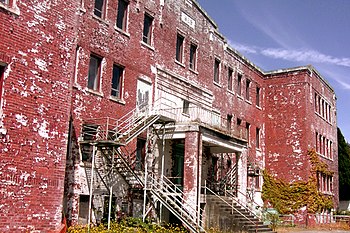 |
| All Black haka before a match against France, 18 November 2006. The All Blacks won the match 23-11. (Photo credit: Wikipedia) |
 |
| New Zealand national rugby union team (Photo credit: Wikipedia) |
Today I have something to write about that will not mean
much to any of my readers, but somehow or other it means a lot to me.
It concerns the tragic death last
week of a New Zealand Rugby player, Jerry Collins, in France, along with his partner
in life, Alana Magill, a girl from Grande Prairie Alberta, and their 11-week-old daughter Alya, who, when her parents were killed
outright in a traffic accident, was seriously wounded, and is still fighting
for her life.
This doesn’t sound like much of
an event in the larger scheme of things. But an extraordinary thing has
happened. Somehow or other the death of this man, a 35-year-old Rugby player
just approaching being over the hill, has caught the imagination of ordinary
people everywhere who were exposed to his down-to-earth, honest qualities. He
was far from a saint: like many other Rugby heroes he had numerous somewhat
scandalous incidents in his life, but all of these have counted as nothing
compared with the natural, effusive way he related to everyone he came in touch
with, either as a publicly recognized figure, or as an ordinary bloke.
I remember his playing for the
New Zealand All Blacks, which he captained on three occasions. A man of Samoan
origin who dyed the top of his hair blonde, he was the sort of guy who gave
every inch of himself when on the field. His crashing tackles, his monumental
runs with the ball in hand, his exuberance in simply playing the game, made him
stand out on any Rugby field, made him outstanding in every level, up to the
highest.
Yet following his death last
week, a collective fit of sorrow seemed to seize everyone who knew anything
about him. I remember when his tenure as an All Black was terminated,
unreasonably early, in my opinion, that I held the view he had been dropped
because his coach was principal of a grammar
school, and Jerry had been a dustman. Maybe it was more in my head than in reality, for I could not conceive how
such a player could be dropped.
Whatever the reason --- and there
are hints that he retired from international football willingly --- he left his
home country and undertook to play Rugby successively in Britain, France and
Japan, where again the unique power of his positive nature captivated onlookers
just as the power of his physique and his knowledge of the game paralysed
opponents.
On his death, the stories of how,
“a Porirua boy,” he never forgot where he came from. One of the best stories is
of how, finding himself over a weekend in Barnstable, an ancient town of 23,000
in north Devon, he was invited along by the local Rugby club to their game, where,
after turning himself into a temporary coach, he finally took the field with
their lower grade team, just because he loved so much to play. Six weeks later,
when chosen to represent the Barbarians in a
big game in Twickenham, he wore the socks of the Barnstable colours in
the game --- the sort of action that earned him the affection of thousands,
endearing him to almost everyone he came
across.
Alan Duff, one of New Zealand’s most famous novelists and
writers, wrote of him:
In France, Jerry Collins is the No 1 item on
every sports channel. Ex-pat fellow All Blacks are filmed crying, Jerry's
former coaches give tearful recalls of coaching a young man and not so young
man they invariably loved… In my rugby-mad town, Bayonne, in the southwest, the
first thing every shop owner we visited said is, "Jerry Collins. C'est
tragique." The butcher, the coffee shop, the bar across the street, the
wine shop, my barber, only one name came up: Jerry Collins. He played a major
part in saving his French club from relegation. I saw him play a few months ago
when his Narbonne team came to play Biarritz, our 13km-away neighbour who we've
just joined, alas, in the 2nd division… Reliable sources tell me there was
media negativity in recalling past incidents of Jerry arrested carrying a knife
in Japan, Jerry drunk and abusive at a fast-food joint, Jerry and his couple of
demons compared to the 48 times he ran out in black and gave his all for his
country. Not one mention of that tiny, unimportant less heroic sliver of his
life was mentioned here in France. They don't do that sort of crap journalism.
Like they are not interested in celebrities. Let alone supposed celebs who
really buy into the nonsense they are someone special. Duh. A radio jock is
special? A loud-mouthed TV presenter is a star? Pl-leaze. Jerry was a true
star.
In imagining a conversation with Jerry, I'll
quote from a Pablo Neruda poem I would read to him.
I'm grateful to the earth
for having waited
for me
when sky and sea came together
like two lips touching;
for that's no small thing, no? -
to have lived
through one solitude to arrive at another
to feel oneself many things and recover wholeness.
And say, finally, at Jerry Collins' grave, that
you, sir, did indeed live through one solitude to arrive at another. Just you
did it with all of us watching; and now some of the wondering is answered and
wholeness was surely recovered.
Although he was a Samoan, and not a Maori, his welcome
home to New Zealand was dominated by Polynesian ritual. Ngati Toa kaumatua
(senior tribal member) Kahu Porata recognized Jerry as a brother. The former
New Zealand captain, Tana Umaga, a cousin of Jerry’s, who was a coach with the
junior All Blacks at the world Under 20 tournament in Italy, flew home to New Zealand accompanying Jerry’s body,
which was greeted back in Porirua in an
immensely moving ceremony featuring welcoming hakas by the Maori pupils of local
high schools, and members of his old Rugby team, Northern United, as other
Rugby players carried his coffin to the
halfway line of the local pitch, and laid it down there.
There was something of this
unexpected international outpouring of emotion that reminded one of the equally
unexpected outpouring in England on the death of Princess Diana. Although the scale was smaller of course,
still it was international: somehow, people everywhere recognized the generous
qualities of a person who lived life to the full, gave everything of himself to
the game he loved playing, and who used that to connect on a personal level
with thousands of people.
Maybe we could all aspire to leave that sort of legacy,
but only the exceptional can do it. And this man, formerly a dustman, always ready to muck in,
if need be, to play his game at any level, just for the enjoyment of it, was
one of them.









